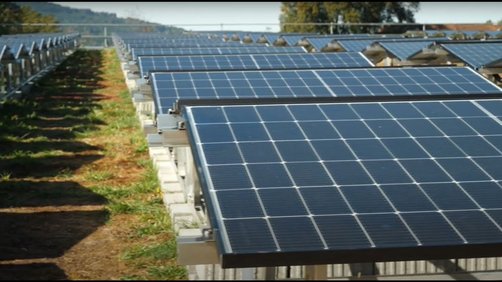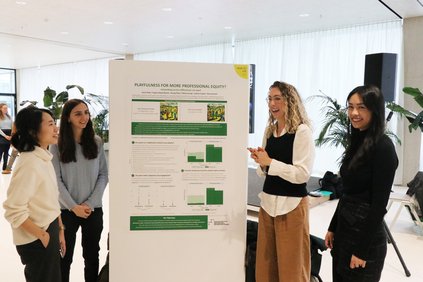Research on sustainability in various areas
HSG ranks in the top three European business schools in terms of publications on the SDGs, according to the Financial Times. At least a third of the University's Institutes and Centres conduct research in the area of sustainability addressing topics on the natural environment, ethics, leadership and values, diversity, inclusion, social and responsible innovation, circular economy, and the global south. Over the last couple of years, HSG has increasingly sought out new hires to support its goal to develop sustainability excellence. In addition, the HSG Impact Scholar Community was created in 2020 to connect and support sustainability scholars. Finally, the HSG joined the Alliance for Research on Corporate Sustainability (ARCS) during 2022.
Environmental sustainability on campus
To become carbon neutral, HSG established the Climate Solutions Taskforce (CST). Most of the goals set by the CST pertain to campus activities, working closely with the University administration in the areas of accounting, procurement and supply chain, mobility, infrastructure and energy, and divestment from fossil fuels. In 2022, HSG released its first Greenhouse Gas (GHG) Protocol report. Since 2007, HSG has been certified for the near-natural design of its environment by the Nature & Economy Foundation. HSG is also a member of the Blue Community to ensure efficient use of water.













